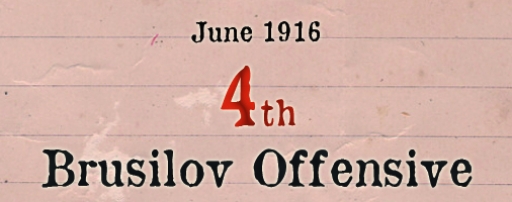General Aleksei Brusilov launched one of Russia’s most successful attacks of the Great War on June 4th 1916, advancing against Austro-Hungarian forces in present-day Western Ukraine.
Brusilov used innovative tactics for an offensive aimed at easing German pressure on the French at Verdun and the Italians on the Alpine front.
He achieved an element of surprise, striking along a broad stretch of the Eastern Front after a brief but accurate artillery barrage.
The short bombardment denied Austrian commanders early warning of Russian intentions, giving them less time to move up reinforcements.
Brusilov’s attack on a wide front also made it harder for his opponents to plug breakthroughs in the line.
Austro-Hungarian losses forced Germany to redeploy soldiers from Verdun to help stem the Russian offensive. But Brusilov’s army also suffered heavy casualties and hampered by poor communications, it was unable to follow up its advances. By October, the offensive was over.
Russia was engulfed in revolution the following year, taking it out of the First World War after the Bolsheviks’ seizure of power in November 1917.
Sources: Wikipedia/various
Posted by: CN Editorial Team
